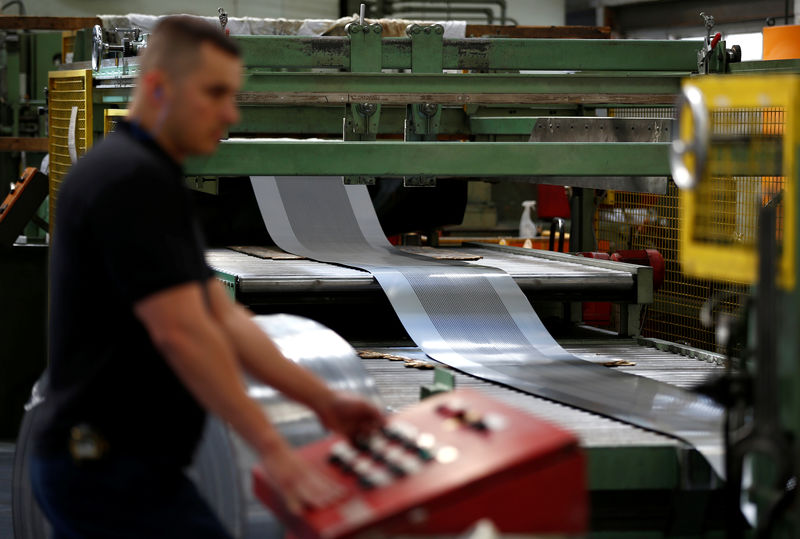LONDON, (Reuters) - Britain's economy unexpectedly grew in February, helped by clients of manufacturers rushing to stockpile goods ahead of Brexit, official data showed on Wednesday.
Gross domestic product grew by 0.2 percent from January, the Office for National Statistics said.
Economists taking part in a Reuters poll had expected zero growth.
Britain's economy has held up better than many economists expected since the 2016 Brexit referendum although it has slowed ahead of its departure from the European Union and as the world economy loses momentum.
The International Monetary Fund said on Tuesday that Britain would grow by 1.2 percent in 2019 -- as long as it avoids the shock of a no-deal Brexit. That would be faster than Germany's 0.8 percent and only a touch slower than France's 1.3 percent.
However, Britain still looks set for its weakest growth in a decade this year, according to forecasts from the IMF and the Bank of England which assume a Brexit deal will be done.
Prime Minister Theresa May will seek a new delay to Brexit when she meets EU leaders on Wednesday, just two days before Britain is due to leave the bloc without the cushion of a transition deal.
Wednesday's data showed that over the three months to February, the economy grew by 0.3 percent, holding at the same pace as in January -- which was revised up from a previous estimate -- and stronger than a forecast of 0.2 percent in the Reuters poll.
Manufacturing output jumped by 0.9 percent in February from January, stronger than all forecasts in the Reuters poll and accounting for about half of the overall economic growth rate.
The ONS said it seen signs that clients of manufacturers were stockpiling goods to get ahead of any border delays in the event of a no-deal Brexit which was scheduled for March 29 but was subsequently delayed.
An ONS official said orders were being brought forward to beat the Brexit schedule, suggesting a likely drag on the numbers for coming months.
The statistics office said it could not quantify the impact of stockpiling on the data.
Britain's dominant services sector grew by 0.1 percent in monthly terms in February, held back by the 12th fall in a row in the financial services sector - the longest such run on record -- while construction rose by 0.4 percent.
There were signs that the slowdown in the global economy was also weighing on Britain's economy.
Export volumes fell by 0.4 percent in the three months to February from the three months to November while imports jumped by 6.8 percent.
So far, Britain's exporters have shown no sign of being helped by the fall in the value of the pound caused by the 2016 Brexit referendum.

The ONS said it could not say whether the increase in imports was driven by pre-Brexit stockpiling.